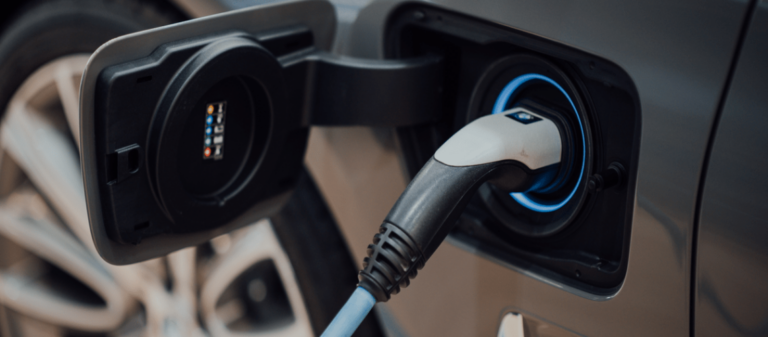We all know how much we rely on our cars. Whether it’s dropping the kids off at school, commuting to the office or running errands, they’re crucial parts of daily life.
Choosing a new one therefore is always a big decision but even more so if you’re thinking about making the switch to an electric car.
Electric car sales have risen dramatically in recent years and more drivers than ever before are getting behind the wheel of a vehicle powered by electricity.
Driving an electric car comes with a different set of tasks and requirements than a petrol or diesel alternative.
That shouldn’t be a reason not to make the change though, instead you just need to get to grips with everything there is to know about the day to day running of an electric car…
Charging at Home
Charging your electric car at home means you can start off every day with a “full tank” and prevents you from worrying too much about finding a public charging point, especially if you’re just undertaking short trips.
Most electric car owners choose to charge their car overnight or on a day when they have no plans to leave the house. Having a relaxed Sunday afternoon at home? Perfect time to put the car on charge!
You can charge an electric vehicle with a standard three-pin socket but most manufacturers limit the amount of power these provide.
Specialised EV home chargers however can deliver power and charge at up to three times the speed of standard plugs and can save you money on your domestic electricity bill too.
Installing a charging point at home does come with an initial upfront cost which is usually in the region of £800-£1000. The good news is that the Government are currently offering OLEV grants of up to £350 to go towards the cost of installing home charging points.
If you’re interested in installing a home charging point then contact the Evaa team to find out how we can help.
Owning an electric car is actually pretty conveinevent too. Whilst filling up your car with petrol and diesel requires you to take a trip to a petrol station, you can pop your electric car on charge and carry on with your day. In fact, you might even be charging up your EV as you read this…
Charging your electric car at home tends to only be an option for those with private parking. Don’t worry though, there are plenty of public EV charging stations available across the UK and you can even use the Evaa app to find your nearest public charging points.
Charging in Public
In the same way that you simply head to a petrol station to fill up your petrol or diesel car, charging your electric car in public is quick and easy.
Electric vehicle charging stations are popping up everywhere from petrol stations to supermarket car parks and even cinemas and on the side of the road.
Finding your nearest charging point when you’re out and about is simple and here at Evaa we’re working with companies across the UK to help them install accessible EV charging software.
Rapid charging points are the most common type of public electric vehicle charging software and can boost your car’s battery back to 80% in as little as 30 minutes.
The actual time it takes to charge depends on the vehicle type and various contributing factors including weather and load.
If you’re going on a longer journey or don’t want to charge your electric car at home then make sure you familiarise yourself with local charging stations.
The Evaa app is the ideal tool to help plan longer journeys in your EV. The app allows you to find your nearest public charging points as well as helping you to plan your route with charging stops in mind.
Some major employers now offer electric car charging to employees on-site thanks to the Government’s Workplace Charging Scheme (WCS) which can be helpful for commuters looking to boost their battery ready for the journey home.
Servicing and Repairs
A massive perk of electric cars (other than their impressive environmental benefits) is that servicing and maintenance tends to be considerably cheaper than petrol and diesel alternatives.
This is mainly thanks to the fact that electric motors contain fewer moving parts which basically means there’s less things at risk of breaking.

Electric vehicles don’t have a gearbox, clutch, exhaust or a catalytic converter which should result in fewer trips to see your local mechanic. Great news for you, perhaps not so much for them…
The brake pads and discs on EV’s also face much less wear and tear thanks to regenerative braking and battery performance issues are usually covered by your car manufacturer.
Like all vehicles, your electric car will still need an annual MOT but there’s no emissions test for EV’s giving you one less thing to worry about failing.
You can also sign-up to specialist breakdown cover for your electric car, with providers like RAC including a mobile charging unit for customers who have run out of charge whilst on the road.
Car Insurance
The principles around car insurance for electric vehicles are the same as any other car.
Policy rates will be determined by a number of factors including age, previous claims and years on the road.
It’s worth noting that most insurance providers have a slightly higher rate for electric cars than petrol and diesel alternatives. The main reason for this being that most electric cars are newer models meaning insurance policies are naturally pricier.
The difference overall however between car insurance for an EV compared to petrol or diesel is minimal and like with any insurance policy, there is always the chance to negotiate a better deal based on your own personal circumstances.
When you choose to drive an electric car you may be given the chance to lease the battery from the car manufacturer rather than own it outright. This can have various benefits including cost and maintenance.
If you do opt for this however then the battery remains the property of the manufacturer and it’s important to declare this when selecting your car insurance policy.
Road Tax
The great news for electric car drivers or those debating making the switch is that you pay zero road tax on electric vehicles.
Road tax is calculated by the level of emissions a car emits into the atmosphere and of course, that’s a big fat nothing for electric cars.

The savings you make on road tax can not only help to line your pockets but they can go towards covering the cost of that potentially pricier insurance policy.
Thanks to global leader’s commitment to saving the planet, it’s not just road tax that EV drivers can save on. There are various things either already in place or in planning including:
- Cheaper company car tax (which will soon move to zero).
- 100% discount from the London Congestion Charge.
- Reduced parking charges in some areas.
EV Performance
We can guarantee one of the first things you’ll notice when you get behind the wheel of your electric car is the silence.
Apart from a small hum as you accelerate, the only noise comes from the tyres on the road and the wind outside.
Thanks to the lack of gearbox, acceleration is seamless and unlike petrol alternatives that require some revving to get the engine to full capacity, electric vehicles produce peak pulling power from standstill.
This is what makes electric cars particularly great for urban areas or undertaking shorter trips.
On the whole an electric car tends to be more energy efficient than other alternatives as they’re much better at converting their energy into motion.
Driving an electric car also puts an end to being in the wrong gear as you turn a corner or struggling to find the elusive bite point as you prepare for traffic lights to turn green.
Throttle response of electric cars is unrivalled. With petrol or diesel cars it’s a case of engine revs and downshifts before the car can really accelerate away, there’s none of that in an electric vehicle and only the driver in charge knows when the car is about to speed off.
Once upon a time the performance level of electric cars was up for debate. Not any more and with manufacturers putting more budget and resources into their electric vehicles, the performance power is only going to get better.
EV Range
Nobody wants to find themselves stranded without any charge left in their car battery so understanding the range of your electric car is essential for daily drives.
How often do you worry about running out of petrol? Probably only when the dreaded red petrol light comes on right? Driving an electric car is no different.
You’ll get plenty of warning on your dashboard when battery levels are running low and you can keep an eye on what percentage you’re on at all times.
For a fully charged electric car you can currently expect between 100-300 miles. Obviously this depends on the model of car you’re driving with smaller vehicles offering up less range potential than larger models.
100 miles however is still pretty far and if we’re talking about the day-to-day running of an electric car, how often do you drive 100 miles? We’re guessing it’s not every day.
As more money is pumped into electric vehicle manufacturing, the range capabilities of EV’s will only get better.
The infrastructure required for electric vehicle charging is becoming more and more widely available meaning no matter what the range of your car, you’ll never have to worry about running out of charge.
Final Thoughts
Electric cars continue to grow in popularity and the chances are that we’ll all have one parked outside our home eventually.
Getting to grips with the day-to-day running of an electric car now therefore can only help you out, whether you’ve already made the switch or are still waiting for the right time.
At Evaa we’re dedicated to helping companies across the UK improve the infrastructure of electric vehicle charging software in order to make the daily life of electric car drivers as easy as possible.
If you’re looking to install an EV charging point or you’d like to find out more about our charging software then make sure to book a demo or contact us for a quote and more information.


